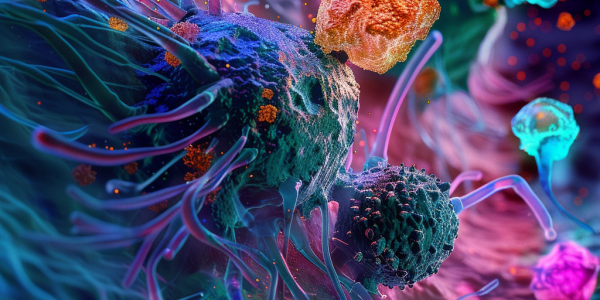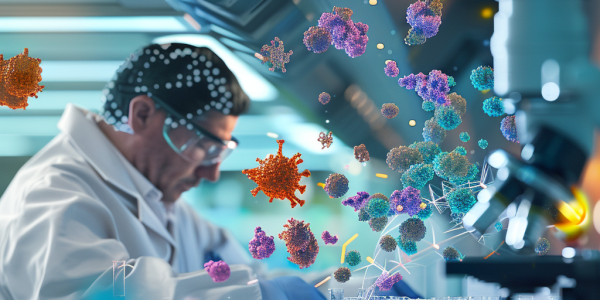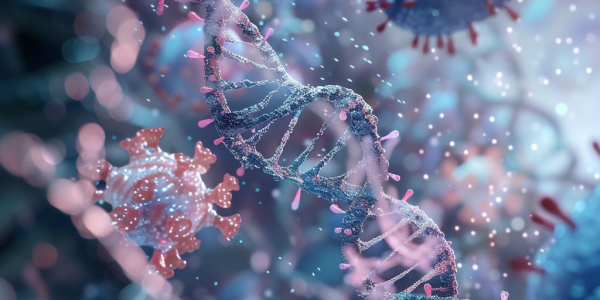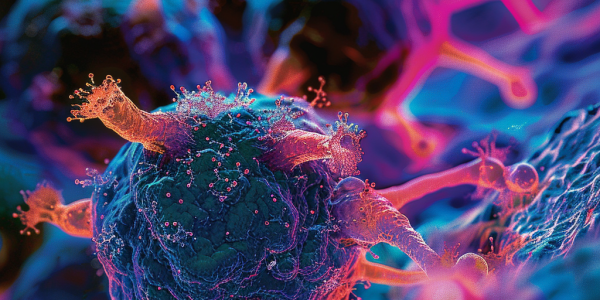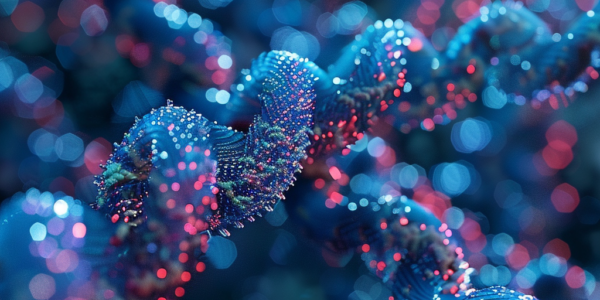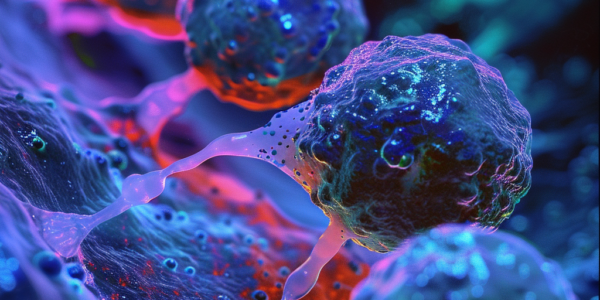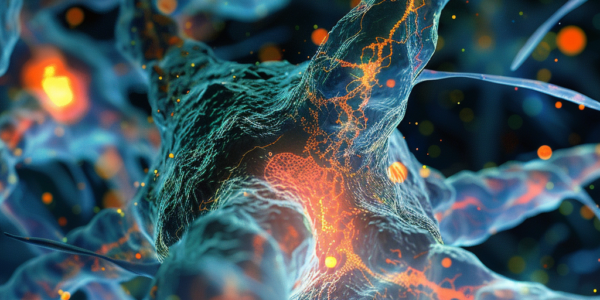New Insights into Cancer Research: The Role of EV-DNA in Antitumor Immunity
In a groundbreaking study published in Nature Cancer, researchers have unveiled the role of extracellular vesicle-derived DNA (EV-DNA) in colorectal cancer metastasis. This research highlights the potential of EV-DNA as a predictive biomarker for postoperative metastasis risk, offering new insights into cancer biology and paving the way for innovative therapeutic strategies.
Study Reveals Role of P-Stalk Ribosomes in Cancer Immune Evasion
A groundbreaking study published in Cell reveals the critical role of P-stalk ribosomes (PSRs) in cancer’s immune evasion mechanisms, highlighting their impact on tumor detection by CD8+ T cells. This research paves the way for novel cancer immunotherapy strategies by targeting PSRs to enhance immune responses against tumors.
Nanotechnology Breakthrough Offers Targeted Treatment for Acute Myeloid Leukemia
Recent advancements in nanotechnology offer a groundbreaking treatment for acute myeloid leukemia (AML). Researchers at UNIST have developed a novel nanoparticle system that selectively targets and destroys leukemia cells while minimizing side effects. This innovative approach could revolutionize cancer treatment, providing safer alternatives to traditional chemotherapy and improving survival rates for patients with AML.
Scientists Discover Novel Approach to Combat Cancer Drug Resistance
Scientists have made a groundbreaking discovery in the fight against cancer by finding a way to manipulate cancer cells to turn against themselves, potentially revolutionizing cancer treatment. A recent study introduced a novel approach to combat cancer drug resistance by modifying lung cancer cells to make them more susceptible to treatment. This innovative approach holds promise in enhancing the efficacy of cancer treatments by sensitizing cancer cells to therapies and potentially overcoming drug resistance.
Genetic Mechanisms of Immune Evasion in Cancer Cells Revealed
Recent research published in Nature Genetics delves into the genetic mechanisms driving immune evasion in cancer cells, particularly focusing on repetitive homopolymer sequences in mismatch repair (MMR) genes. The study highlights how somatic mutations in MMR-deficient cancers contribute to tumor immunogenicity and the role of genetic ON/OFF switches in cancer evolution. By elucidating these processes, researchers aim to develop targeted therapies to enhance the immune response against cancer cells.
Breakthrough in Cancer Treatment Research Achieved with New Immune System Technology
Bar-Ilan University researchers have made a groundbreaking advancement in cancer treatment with new immune system technology, allowing for personalized treatments based on individual immune responses. By monitoring immune system changes around cancer cells, insights into patient reactions to immunotherapy are gained. This research, led by Dr. Shahar Alon, sheds light on the interaction between immune and cancer cells, offering valuable information for tailored treatment decisions and improving patient outcomes.
Groundbreaking Advancement in Cancer Treatment with Protein Micromaterials
Researchers at the Autonomous University of Barcelona have developed groundbreaking micromaterials composed of proteins for targeted cancer treatment. These self-contained micromaterials mimic natural secretory granules, delivering nanoparticles to specific cancer cells for destruction. The technology, patented by the researchers, has shown high performance in animal models of colorectal cancer, offering potential for enhanced drug efficiency and patient comfort while minimizing side effects.
Breakthrough in Understanding Cancer Cell Adaptation to Low Oxygen Environments
Researchers at the Francis Crick Institute have discovered how cancer cells adapt to low oxygen environments, offering potential insights into preventing therapy resistance. The study revealed that cancer cells increase glycolysis within three hours of oxygen deprivation, independent of HIF1α, with the crucial role of enzymes LDHA and GOT1 in regulating the process. This breakthrough could have implications for targeting treatment-resistant cancer cells within tumors with limited oxygen access.
Study Finds Micro- and Nanoplastics Passed on During Cell Division
A recent study reveals that micro- and nanoplastic particles persist in the human body and are transmitted to newly formed cells during division, potentially enhancing tumor metastasis. The findings, published in ‘Chemospheres’, highlight the effects of plastic particles on cancer cells in the gastrointestinal tract.
New Breakthrough Treatment for Triple-Negative Breast Cancer
Australian scientists have developed a new treatment for triple-negative breast cancer, a highly aggressive and deadly form of the disease. The oral medication specifically targets cancerous cells, sparing healthy cells, and addresses metastatic lesions that have shown resistance to chemotherapy. This breakthrough offers hope for improving the survival rates of patients with this difficult-to-treat form of cancer.


